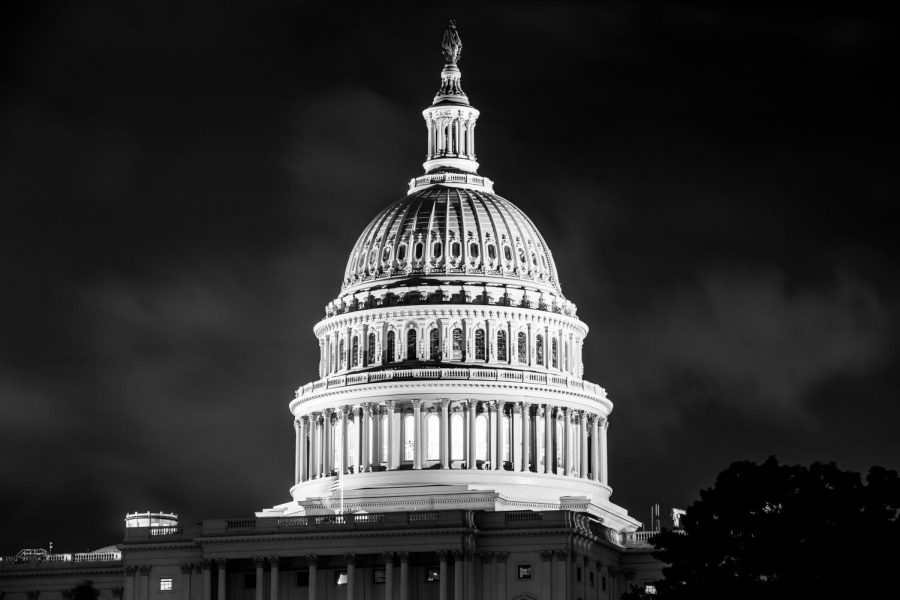More Than Just a Candidate Won the Presidential Debate
President Trump and Former Vice President Biden faced off in the final presidential debate Thursday night, just 12 days before the election. But who or what really won the debate?
U.S. Capitol building lit up at night.
October 26, 2020
Pundits will discuss whether candidate Trump or Biden won Thursday night’s debate, but the biggest winner was democracy itself. A far cry from the chaotic and stormy mess of the first night, Thursday presented at least a semblance of authentic, substantive, and – some might go so far as to say – presidential, ideas.
On the topic of COVID 19, the two candidates had clearly opposing views. Trump based his approach on assertions without a specific plan. He argued that the country should open as soon as possible, including expediting school reopening and pushing for less strict coronavirus regulations. He also made more promises that a vaccine would be ready in a couple of weeks – the same timetable he has provided for months. In a strong response to Trump’s statement that people are “learning to live” with the virus, Biden retorted that, because of President Trump’s mismanagement, we are “learning to die with it!’” Vice President Biden indicted Trump’s inaction at the beginning of the pandemic and opposed his position by arguing that the economy could be reopened responsibly with specific steps including stronger mask policy and wide-spread use of other known prevention measures.
In arguably the most critical and high impact section of the debate, Trump and Biden disagreed on how to combat climate change. Trump made broad and unfounded claims about it being the best year for carbon emissions, that the US has the best air in the world, and that his decision to withdraw from the Paris accord was beneficial. However, he did not provide much other than deregulation as his solution or acknowledge the reality of climate change. Biden countered this idea, saying that climate change was the greatest threat to the country and that the US needed to transition to clean energy as a way of reducing greenhouse gas emissions while creating millions of jobs. In one of his most concrete statements, Biden argued for a transition from the oil industry. President Trump capitalized on this moment, replying, “That is a big statement,” and asking voters in key battleground states, “Will you remember that, Texas? Will you remember that, Pennsylvania, Oklahoma?”
The two candidates were very different in their closing statements on how they will address those who did not vote for them at their possible inaugural speeches. Trump’s response was divisive and focused on himself. He listed all the types of people who had called him in the days before COVID, bragging about his “diverse” supporters. He also attacked Biden’s plans, with vague and elitist threats such as, “Your 401k’s will go to h**l.” In contrast, Biden focused on what would be good for others, promising to deliver unity, that problems could be solved, and millions of jobs would be created.
Without the interruptions that plagued the first debate, Thursday ensured that an uninformed viewer could come away with a clear distinction between what Joe Biden and Donald Trump offer. Regardless of the merits of either candidates’ platform, the achievement of informing voters is how democracy resurfaced through the final presidential debate.


